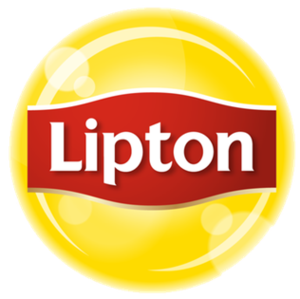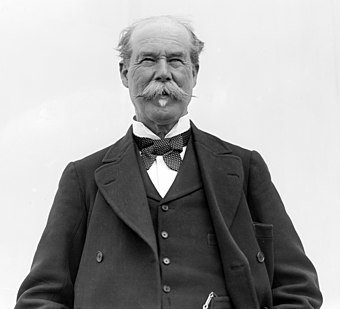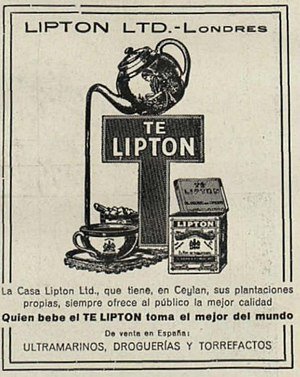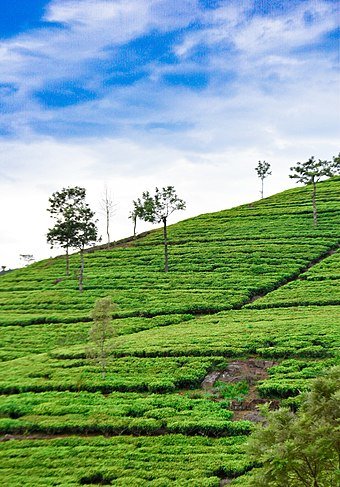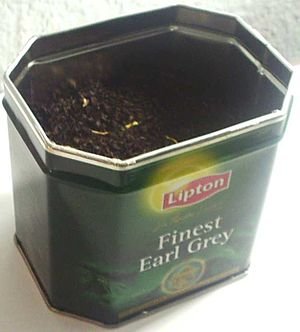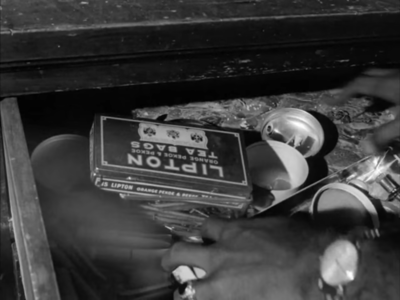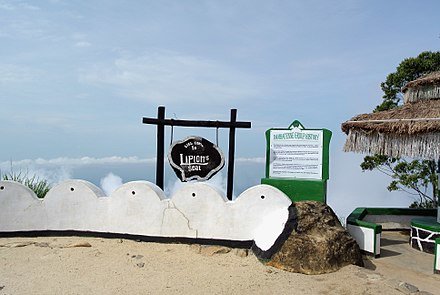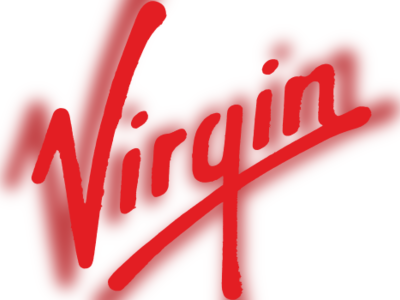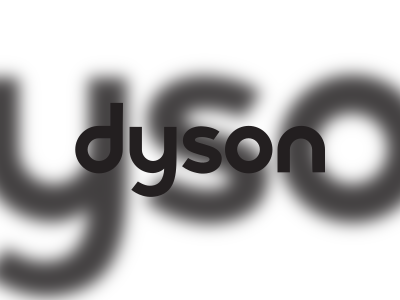British Heritage
Remember, Cherish, Learn.
beta
Lipton -
A Storied Brew at the Heart of British Heritage.
Lipton is a name synonymous with tea, a cornerstone of British heritage. Its rich, complex story is woven tightly with the fabric of British history and culture. A significant contribution to Britain's colonial and post-colonial legacy, Lipton Tea has shaped the trajectory of the British tea industry, with an influence that extends far beyond the nation's borders. Let us delve into the fascinating narrative of this iconic British brand and its enduring contributions to Britain and the world.
Sir Thomas Lipton, the founder of Lipton, was not born into a family of tea merchants. Instead, he was an entrepreneur who started with a single grocery shop in Glasgow in 1871, using his savings to set up his humble enterprise. Over the course of the 1880s, Lipton expanded his empire, establishing over 200 shops. The sheer growth of his business attests to his foresight and business acumen.
Thomas Lipton was a globetrotter in his quest for unique products. His travels led him to a commodity that was then a luxury - tea. At the time, tea was becoming increasingly popular in Britain, with sales doubling from £40 million in the late 1870s to £80 million by the mid-1880s. Sensing an opportunity, Lipton purchased tea gardens in Ceylon (present-day Sri Lanka), enabling him to control every aspect of tea production.
He implemented low-cost packaging and shipping, enabling him to offer tea at prices lower than his competitors. His innovative marketing approach, coupled with the slogan "Direct from the tea gardens to the teapot," earned Lipton tea instant success in the United States.
Lipton's tea business was eventually acquired by Unilever, a consumer goods behemoth, over several transactions. The acquisition began in 1938 with the purchase of Lipton's businesses in the United States and Canada and culminated in 1972 when Unilever bought the rest of the global Lipton business from Allied Suppliers.
Unilever's stewardship has propelled Lipton to new heights, making it a staple in 150 countries worldwide. Interestingly, however, the brand's globally renowned Lipton Yellow Label is not sold in its home market, due to Unilever's ownership of another popular British brand, PG Tips. This peculiarity is an intriguing chapter in Lipton's international tale.
Unilever's emphasis on sustainable practices has profoundly shaped Lipton's operational ethos. In 2007, Unilever took a significant step, becoming the first multinational to commit to making Lipton fully sustainable from tea plantation to teapot. This commitment, in collaboration with the Rainforest Alliance, signifies Lipton's commitment to preserving the environment and ensuring ethical sourcing of its tea.
Lipton teas are a blend selected from various plantations worldwide, including Sri Lanka, India, Kenya, and China. Lipton Yellow Label, the brand's flagship product, comprises about 20 different teas. But Lipton is not limited to traditional black tea. It markets an array of teas, including green teas, flavoured black teas, herbal teas, and even a "slimming tea" known as Lipton Linea in Europe.
In the 1990s and 2000s, Unilever embarked on joint ventures with PepsiCo, resulting in Pepsi Lipton International. This collaboration allowed for the successful marketing of ready-to-drink teas in North America and many non-United States markets.
Lipton has been innovative, creating instant soup mixes in the 1950s and promoting the popular French onion dip prepared using Lipton's French onion soup mix. The brand's offerings have expanded further, including the Lipton pyramid (tetrahedron) range in Europe and North America, and Lipton Milk Tea in East Asia. They also launched Lipton Linea in Western Europe in 2008, demonstrating the brand's adaptability and creativity in meeting diverse consumer tastes.
Today, Lipton remains an influential player in the global tea industry, leaving its indelible imprint on the cultural fabric of many countries. The brand's main pillars are the classic Lipton Yellow Label and Lipton Iced Tea, but it continually introduces new products, reflecting its innovative spirit.
Despite its absence in the UK tea market, Lipton's roots in British culture are undeniable. Its founder's journey from a single grocery shop owner to a tea magnate encapsulates the British entrepreneurial spirit. And Lipton's commitment to ethical sourcing and environmental sustainability reflects the British values of responsibility and integrity.
While Lipton has faced its share of controversies, including product quality issues in China and animal testing concerns raised by PETA, it has sought to address them responsibly. Unilever has committed to stop testing their products on animals unless mandated by governments for regulatory purposes.
In the end, the story of Lipton is about more than tea. It's a tale of British entrepreneurship, innovation, and social responsibility. Lipton's journey from the highlands of Sri Lanka to the supermarket shelves of 150 countries is an integral part of Britain's economic and cultural history, a testament to the British influence on the global stage.
The Humble Beginnings: A Maverick and His Vision
Sir Thomas Lipton, the founder of Lipton, was not born into a family of tea merchants. Instead, he was an entrepreneur who started with a single grocery shop in Glasgow in 1871, using his savings to set up his humble enterprise. Over the course of the 1880s, Lipton expanded his empire, establishing over 200 shops. The sheer growth of his business attests to his foresight and business acumen.
Thomas Lipton was a globetrotter in his quest for unique products. His travels led him to a commodity that was then a luxury - tea. At the time, tea was becoming increasingly popular in Britain, with sales doubling from £40 million in the late 1870s to £80 million by the mid-1880s. Sensing an opportunity, Lipton purchased tea gardens in Ceylon (present-day Sri Lanka), enabling him to control every aspect of tea production.
He implemented low-cost packaging and shipping, enabling him to offer tea at prices lower than his competitors. His innovative marketing approach, coupled with the slogan "Direct from the tea gardens to the teapot," earned Lipton tea instant success in the United States.
Lipton: From a Local Enterprise to a Global Giant
Lipton's tea business was eventually acquired by Unilever, a consumer goods behemoth, over several transactions. The acquisition began in 1938 with the purchase of Lipton's businesses in the United States and Canada and culminated in 1972 when Unilever bought the rest of the global Lipton business from Allied Suppliers.
Unilever's stewardship has propelled Lipton to new heights, making it a staple in 150 countries worldwide. Interestingly, however, the brand's globally renowned Lipton Yellow Label is not sold in its home market, due to Unilever's ownership of another popular British brand, PG Tips. This peculiarity is an intriguing chapter in Lipton's international tale.
Sustainability and Social Responsibility: A Legacy Beyond Tea
Unilever's emphasis on sustainable practices has profoundly shaped Lipton's operational ethos. In 2007, Unilever took a significant step, becoming the first multinational to commit to making Lipton fully sustainable from tea plantation to teapot. This commitment, in collaboration with the Rainforest Alliance, signifies Lipton's commitment to preserving the environment and ensuring ethical sourcing of its tea.
An Eclectic Palette: From Black Teas to Flavoured Brews
Lipton teas are a blend selected from various plantations worldwide, including Sri Lanka, India, Kenya, and China. Lipton Yellow Label, the brand's flagship product, comprises about 20 different teas. But Lipton is not limited to traditional black tea. It markets an array of teas, including green teas, flavoured black teas, herbal teas, and even a "slimming tea" known as Lipton Linea in Europe.
Partnerships and Innovations: Expanding the Lipton Empire
In the 1990s and 2000s, Unilever embarked on joint ventures with PepsiCo, resulting in Pepsi Lipton International. This collaboration allowed for the successful marketing of ready-to-drink teas in North America and many non-United States markets.
Lipton has been innovative, creating instant soup mixes in the 1950s and promoting the popular French onion dip prepared using Lipton's French onion soup mix. The brand's offerings have expanded further, including the Lipton pyramid (tetrahedron) range in Europe and North America, and Lipton Milk Tea in East Asia. They also launched Lipton Linea in Western Europe in 2008, demonstrating the brand's adaptability and creativity in meeting diverse consumer tastes.
Lipton Today: A Blend of Tradition and Modernity
Today, Lipton remains an influential player in the global tea industry, leaving its indelible imprint on the cultural fabric of many countries. The brand's main pillars are the classic Lipton Yellow Label and Lipton Iced Tea, but it continually introduces new products, reflecting its innovative spirit.
Despite its absence in the UK tea market, Lipton's roots in British culture are undeniable. Its founder's journey from a single grocery shop owner to a tea magnate encapsulates the British entrepreneurial spirit. And Lipton's commitment to ethical sourcing and environmental sustainability reflects the British values of responsibility and integrity.
While Lipton has faced its share of controversies, including product quality issues in China and animal testing concerns raised by PETA, it has sought to address them responsibly. Unilever has committed to stop testing their products on animals unless mandated by governments for regulatory purposes.
In the end, the story of Lipton is about more than tea. It's a tale of British entrepreneurship, innovation, and social responsibility. Lipton's journey from the highlands of Sri Lanka to the supermarket shelves of 150 countries is an integral part of Britain's economic and cultural history, a testament to the British influence on the global stage.
- Liptonen.wikipedia.org
